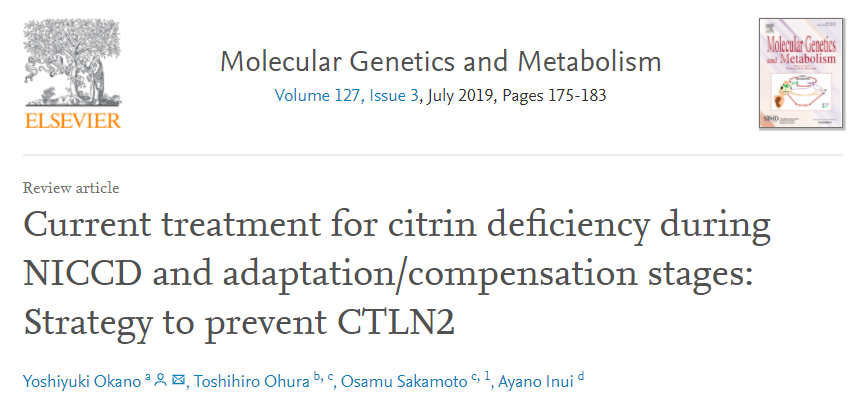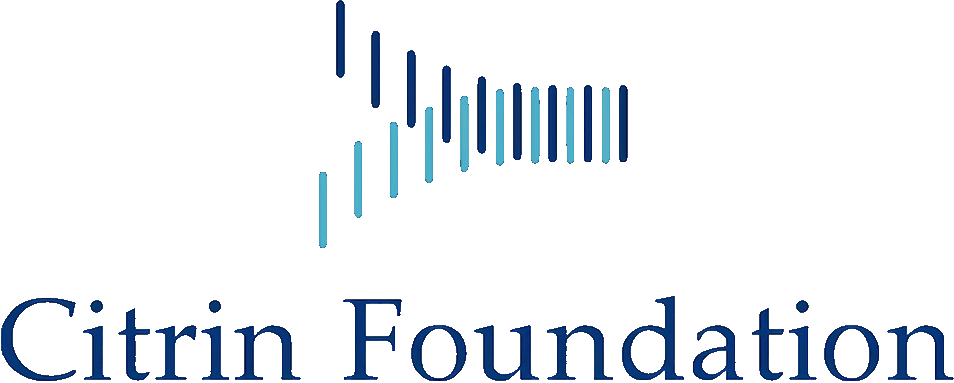We are very pleased to share with you the first medical protocol for citrin deficiency patients prepared by Dr. Yoshiyuki Okano and sponsored by Citrin Foundation. Dr. Okano has written the paper, titled “Current treatment for citrin deficiency during NICCD and adaptation/compensation stages: Strategy to prevent CTLN2”, published in Molecular Genetics and Metabolism, and it is available for viewing here: https://doi.org/10.1016/j.ymgme.2019.06.004
The paper shares that the reported prevalence of CTLN2 in Japan is 1/100,000. However, the carrier rate is approximately 1 in 65 or 1 in 42 from the analysis of citrin-deficient gene. The estimated incidence of CTLN2 (1 in 17,000 or 1 in 7100, reported in the above two studies, respectively) is largely different from that of actual CTLN2-onset patients. These figures suggest that only few patients with citrin deficiency develop CTLN2. The onset of CTLN2 is triggered by various factors including alcohol intake, excessive carbohydrate ingestion, and fatigue. In other words, environmental factors such as diet play a role in the progression of CTLN2, together with the deficiency of the citrin gene. Liver transplantation was thought to be the most suitable treatment for CTLN2. However, the recent studies have demonstrated the effectiveness of arginine, sodium pyruvate, and medium chain triglyceride (MCT) oil, in addition to the diet therapy, which suggests the comprehensive treatment is important to prevent the onset of CTLN2. Recently, it has been reported that ornithine plus aspartate significantly reduces blood ammonia in a mouse model of citrin deficiency and is expected to effect on citrin deficient patients.
More than 20 years have passed since the responsible gene of CTLN2 was identified, and a number of clinical reports and studies have been published. In this paper, Dr. Okano summarized the current treatment during NICCD and the adaptation and compensation stage to prevent the onset of CTLN2.
Citrin Foundation sponsored the study in preparation for this treatment guideline for citrin deficiency. We hope that this protocol could serve as a useful and effective guideline for the global medical community in the treatment of citrin deficiency in the future.
We value any feedback or idea you might have, so please do not hesitate to contact us at info@citrinfoundation.org.
(Updated August 2019)



